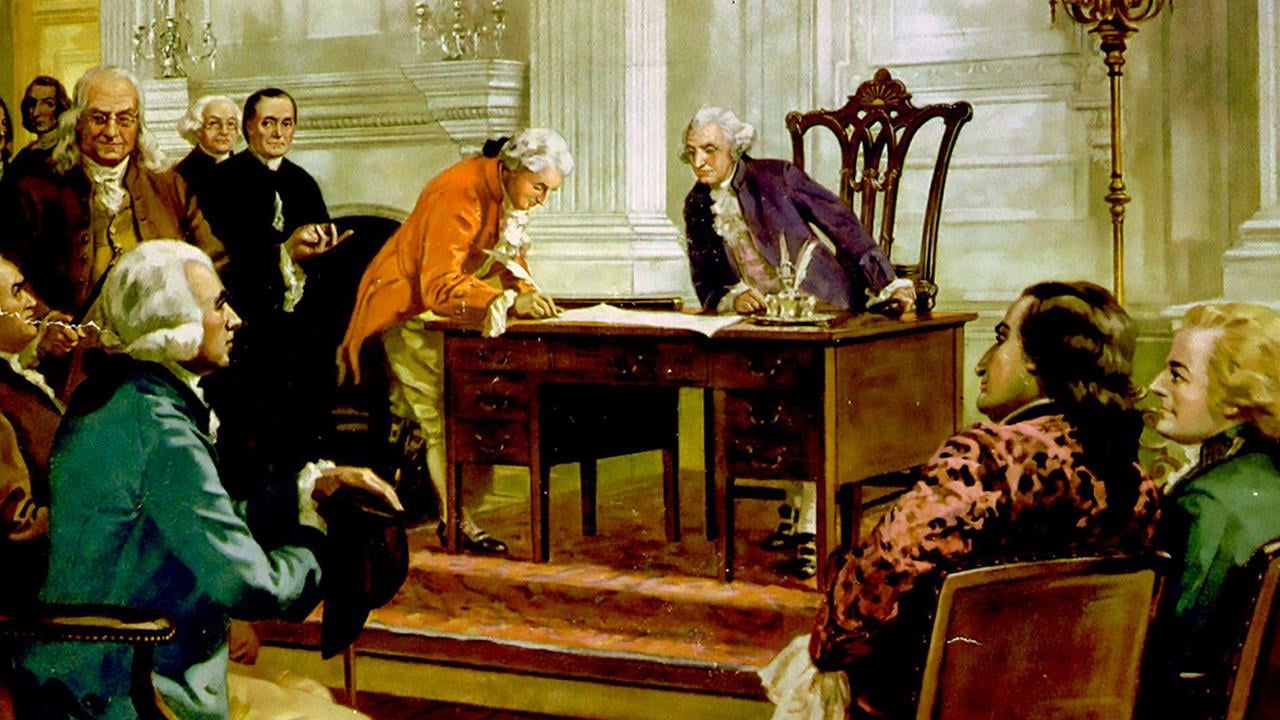
Whether it is signs of our two-tiered system of governance, vaccine and mask mandates, or the insults heaped by one half of the country on the other, we see evidence of the growing fissure dividing America. We are divided not by race, nor even strictly speaking by class. Rather, our country is split between those who believe they have the right to rule their fellow citizens and Americans who are subjected to the abuse of their self-described “betters.”
Our Founding Fathers anticipated such a possibility, and so this week, we again turn to The Federalist Papers for perspective as part of our continuing series on this historic collection of articles and essays written by Alexander Hamilton, James Madison, and John Jay. The collection was published between October 1787 and May 1788, arguing for the virtues of the Constitution and urging citizens of our newly founded country to ratify it.
Thanks to a long-running musical about his life, Hamilton is perhaps the best-known of its authors, but James Madison is one of the most important minds our country has ever produced. Indeed, his ideas about the nature of man and politics shape our daily existence, for he played a crucial role in drafting the constitution and the Bill of Rights. And thus to history, he is known as the “Father of the Constitution.”
Last week we looked at Federalist 10, in which Madison argued that direct democracy would give rise to the “tyranny of the majority.” He contended instead that a republican form of government in which citizens elect delegates to vote on laws was best suited to the character of our diverse people. In Federalist 39, he described in more detail what he meant by “republican.”
First, he explained what it wasn’t. Some governing bodies that called themselves republics, like ancient Rome, Venice, and Poland, were in reality run by “hereditary nobles.” This was government by, for, and of the elites. But in the case of the United States, wrote Madison, republican government would be derived not by a “favored class” of “tyrannical nobles” but rather “from the great body of the people.”
Federalist No 39 also addressed concerns that the individual states would forfeit their distinct identities as part of the new federal government designed by the Constitution. Madison fired back. “Each State,” he wrote, “in ratifying the Constitution, is considered as a sovereign body” and would maintain its sovereignty. This check against the power of the federal government would preserve the people’s right to self-government.
Nothing illustrates the insights that Madison imparted in Federalist No. 39 better than the Covid-19 lockdowns. Federal and state officials imagined themselves as an aristocracy entitled to impose idiosyncratic and irrational measures that punished middle-class Americans. Accordingly, many fled those petty tyrannies for sovereign states like Florida, where they again found freedom under independent-minded governors and legislators.
At America’s Future, we marvel at the genius of our Founding Fathers, to whom we are grateful not only for our history but also for our future as a free people.






